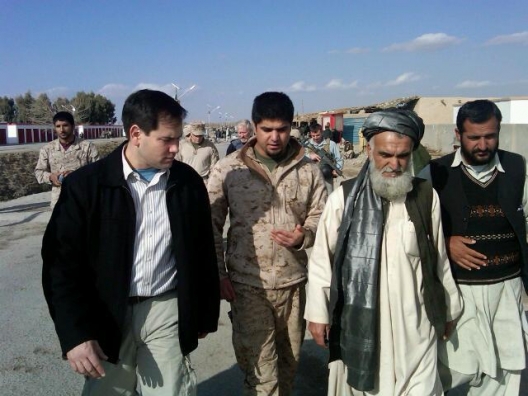 We are witnessing an attack on our shared values. Rivals question whether our economies and our systems of government remain viable in this competitive world. We still confront a serious challenge from radical Islam and its tool of global terror. We face continued instability in the Middle East and Africa, as well as increasing uncertainty in Asia.
We are witnessing an attack on our shared values. Rivals question whether our economies and our systems of government remain viable in this competitive world. We still confront a serious challenge from radical Islam and its tool of global terror. We face continued instability in the Middle East and Africa, as well as increasing uncertainty in Asia.
To meet these challenges, we need to first build on the success of our transatlantic alliance. We should continue adapting NATO to meet new threats from rogue states and jihadists. And we must leverage our partnership
to confront uncertainty in the Middle East and Asia, as well as promote the promise of our values in Africa and Latin America.
We’ve achieved quite a bit since the end of the Cold War, but we need to continue to extend the influence that European institutions have had on Europe’s periphery. Part of this involves being blunt about our differences with Vladimir Putin’s government and reassuring our allies in the region that we support their ambitions to move forward toward liberty rather than backwards toward the days of Soviet domination.
Many of these allies face ongoing threats to their territorial integrity, including in new realms such as cyberspace.
We also need to ensure that those on Europe’s periphery who still desire to join the Western community of democracies retain the option if they meet the entry requirements.
In particular, the United States needs to continue to work closely with the EU to bring Ukraine into the Western fold. . . .
The United States needs a strong European Union that continues to be a stabilizing force on the continent but also an effective partner on key international issues. As for Britain’s role in Europe, that should be a matter for the British people to decide and your American partners should respect whatever decision you make. Our alliance, our partnership, and our affection for your nation will continue regardless of the road you choose.
One of the key components of our unshakeable alliance is NATO. It remains relevant to the changing strategic landscape. The alliance has played an enormously important role in extending our shared values and solidifying
peace and security in Europe.
But in the last 15 years, we have also gone to war together three times – in Kosovo, Afghanistan, and Libya – a development likely never envisioned by NATO’s founders in 1949 when Soviet aggression posed the bigge
st threat to our mutual security.
Not all allies look back on these operations through the same lens, but we need to recognize that these conflicts serve as illustrations of the fact that threats to our mutual security still exist more than two decades after the end
of the Cold War.
Even as our joint mission in Afghanistan transitions to a new phase, we must focus on confronting new and emerging threats. Cooperation on challenges such as missile defence and threats emanating from the cyber realm are
important, but not sufficient to ensure the long-term viability of our alliance.
We need to explore ways that NATO can prepare for its future missions. For instance, despite the sacrifices borne by many allies in Afghanistan, our militaries gained valuable experience in coalition warfare. We should determine how these capabilities can continue to be relevant in the future.
We also must be frank about where we can improve our efforts. Most can agree that the operation in Libya, for example, shouldn’t have turned into such a difficult effort for the alliance. We should determine the best ways to apply the lessons we learned during this operation to future efforts. We also must examine how our failure to provide support to the pro-Western government that followed Gaddafi’s ouster contributed to the current instability in that country.
Each of our nations must also rethink our approach to defence spending. We both face significant budgetary issues. But we must ensure that we do not repeat the mistakes that followed both the First World War and the Cold War, when we assumed we could cut back on our security in hope of a peace that never materialized.
Excerpts from remarks by Senator Marco Rubio at Chatham House, December 3, 2013.
Image: Senator Marco Rubio in Afghanistan, January 16, 2011 (photo: Office of Senator Marco Rubio)
